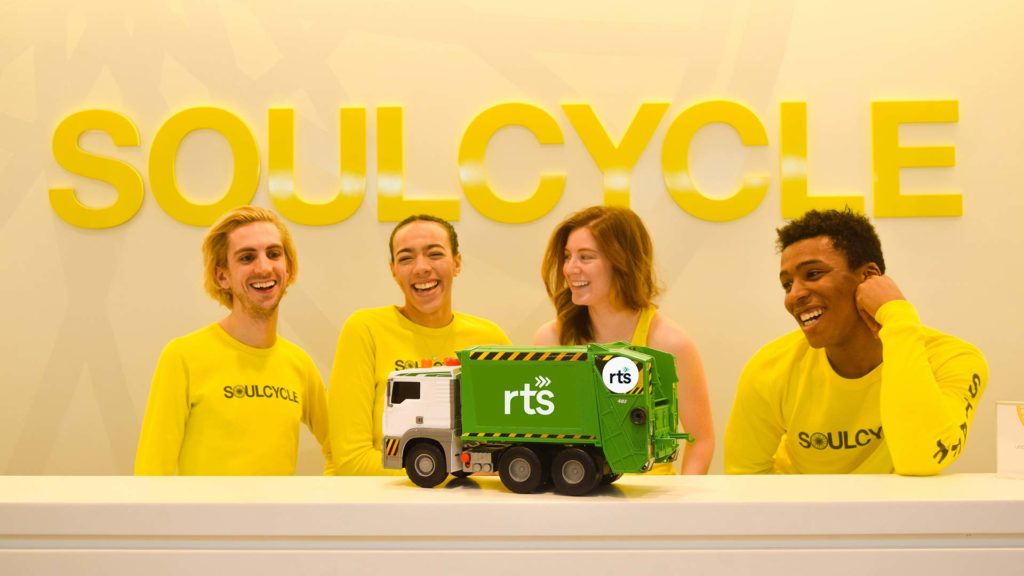For companies around the world, the race to “go green” is on. From the eco-based startup with a long-term plan to change the world, or an existing multinational business that needs to overhaul its existing policies, companies are waking up to the benefits of sustainable practices. Much more than simply an exercise in brand marketing, carefully building a company’s eco-credentials also brings plenty of other benefits that go hand-in-hand with a reduced environmental impact.
However, there’s a fine line between sustainable policies that prioritize the environment and greenwashing—the practice of making unsubstantiated claims about the environmental value of a company’s products or services. True “green growth” needs to come from the ground up, and simply selling a recycled product or an eco-service is no longer enough—particularly if other areas of the business are wasteful or polluting.
As an antidote to greenwashing, circular business models are beginning to gain traction, and in any conversation related to the circular economy, waste (or it’s eradication) quickly becomes a critical topic. Naturally, there are many ways for a company to go green, however waste is something that all companies generate, and subsequently, waste management is something that all companies can continuously improve. In fact, it is the ideal place to start when considering how to build a company’s green credentials.
In 2018, RTS diverted an estimated 40 tons of e-waste; 4,010 tons of food waste; 6,600 tons of bulk waste, and organized donations for more than 20.5 tons of reusable materials. In the next decade, we plan to partner with businesses to divert waste and expand our operations in major markets. Below, we look at some of the companies we’ve already helped, reinventing their waste management operations for a truly sustainable way to embrace green business.
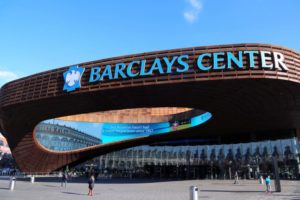 Barclays Center
Barclays Center
Barclays Center is a Major League multipurpose arena in Brooklyn, New York. Committed to sustainable event management and improving the company’s eco-credentials, the stadium began to source ways to better sort the high volumes of waste generated during events. A lack of storage/sorting space was one of the many challenges faced by the stadium and solving the subsequent waste stream contamination caused by this was among the priorities.
The solution was to introduce custom equipment designed to compact waste, increasing operational efficiency and reducing the risk of contamination. Comprehensive staff training gave employees the skills to effectively sort waste at the source, which was then reduced in size and ready to be hauled to the appropriate facility.
Diversion metrics also allowed Barclays Center to measure and improve its waste management on a month-to-month basis. In total, 1,070 tons of cardboard and plastic, and 650 tons of organic waste was diverted and composted.
 WeWork
WeWork
WeWork is redefining offices in the 21st century with its sharing-economy model designed for coworking and company cohabitation. Through flexible leasing, services, and technologies, both individuals and startups are finding new ways to cut costs, collaborate with each other, and grow their businesses. However, this presents a very specific set of challenges regarding waste management.
Constantly shifting tenancies give rise to diverse waste removal requirements, and a huge range of materials are generated in non-regular amounts across a portfolio of locations. This includes everything from furniture to e-waste, everyday recyclables and trash. However, through on-demand requests for the removal of waste and bulk items, RTS has helped WeWork streamline removals across multiple locations and eliminate self-hauling—even coordinating multiple pick-ups from different sites.
The RTS app has also allowed WeWork to send photographs of materials, making arranging the correct type of equipment for collection quick and simple, while opportunities for donation are also identified to ensure more items are diverted from landfill. In addition to this, consolidated invoicing for simple admin and continuous on-site consultancy at specific locations ensures that WeWork’s waste management operations can grow seamlessly with the company’s green growth.
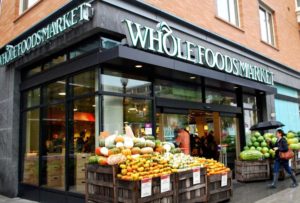 Whole Foods Markets
Whole Foods Markets
As the nation’s premier health food store, Whole Foods Market was among the early adopters of New York’s Zero Waste Challenge. With the broader remit for the city to send zero waste to landfill by 2030, Whole Foods Market set out to divert at least 50% of its waste from landfill or incineration within five months.
Through compliance education and training, RTS’s team of TRUE Advisors began working with back-of-house staff to optimize waste stream sorting through signage, bin placement, and by detailing compliance requirements. Diversion reporting and tracking were an integral part of the OneNYC challenge, and through the confirmation of organics and recyclables reaching the correct facilities, alongside data on waste stream contamination, RTS was able to provide accurate reporting and insights on how processes may be further improved.
Finally, on-demand services to support regular collections helps Whole Foods Market deal with unanticipated waste and irregular diversion efforts. On our partnership with the company’s move to go green, the Whole Foods Market Green Mission Specialist had this to say:
“Working with RTS to incorporate their innovative solutions into our process for organics and waste diversion has helped us achieve new waste removal goals. Even though the challenge ended, together with RTS, we will continue to commit to reducing more waste each day.”
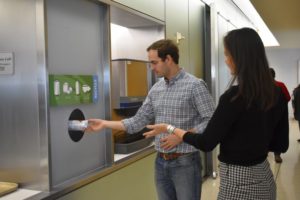 How RTS Can Help Your Company
How RTS Can Help Your Company
If you’ve found yourself asking the question “How can my company go green?”, RTS is on hand to provide the answer. Our TRUE Advisors can comprehensively audit your existing systems and assess your needs, working together with your waste management operations to find new recycling, reuse, and donation opportunities that ensure more waste is diverted from landfill and your environmental impact is reduced.
We offer both on-demand and recurring collections so you can deal with variable needs across multiple locations, with a fleet of digitally connected haulers instantly communicating arrival times allowing you to efficiently organize your team for loading. Additionally, insightful waste stream analytics provide your company with the data required to meet compliance and optimize your collection, sorting, and separation efforts as you grow.
Contact our LEED-accredited team to discuss your requirements and advance your sustainability goals today.
